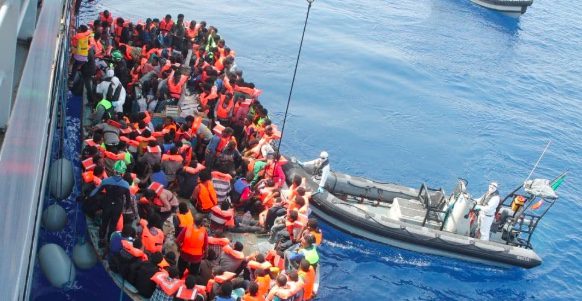
Exposed! Escalation of violence by EU-backed Libyan coast guard
A new report shows the Libyan Coast Guard—funded and equipped by the European Union—is escalating violent assaults on migrants and rescue workers in the Mediterranean. The findings raise serious questions about Europe’s complicity in abuses under the banner of “migration management.”
Violence rising despite EU funding
The NGO Sea-Watch documented at least 60 violent incidents since 2016. Most involved Libyan forces. The number of attacks has risen sharply, from three in 2016 to 11 in both 2023 and 2024. At least nine more were recorded this year.
These attacks include shootings, hijackings of rescue vessels, and dangerous maneuvers at sea. Many occurred in international waters between Malta and Libya. The NGO believes the true number is far higher, warning that the violence is “systemic.”
Over the weekend, another incident took place in the central Mediterranean. According to Italian authorities, a fishing vessel carrying about 140 migrants was allegedly shot at southeast of Malta. Two people reportedly died.
“Gross human rights violations”
POLITICO reports,
Some EU lawmakers are urging the European Commission to cut its partnership with Tripoli altogether. In a letter addressed to the commissioners for migration and the Mediterranean, seen by POLITICO on Monday, a group of MEPs cite ‘gross human rights violations including human trafficking, forced labor, starvation, sexual violence and torture’ by Libyan authorities. EU support has ‘emboldened [the Libyan Coast Guard] to commit further abuses,’ the letter states, calling for an immediate halt to EU funding for Libyan security forces and the redirection of support toward civil society and U.N. actors.
Despite this, EU officials defend their partnership with Libya as “necessary” to prevent deaths at sea. Yet rights groups say the policy traps people in a cycle of interception and abuse. Those captured are sent back to detention centers where torture and forced labor are widespread.
